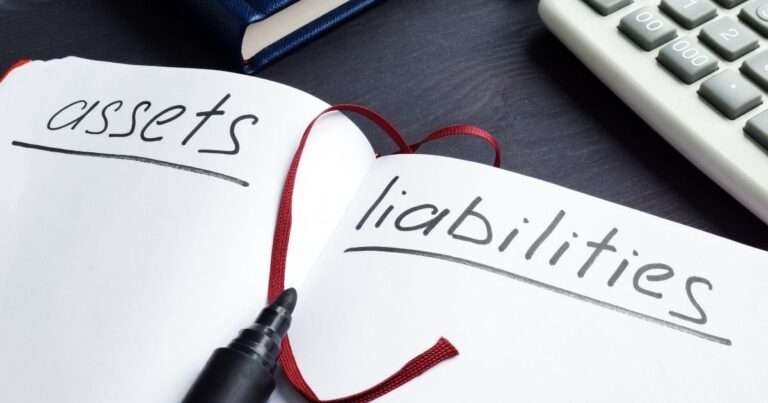How Are You Valuing Your Time?
You review your finances and strive to improve your money management, but how often do you review your time management?
Our time and health are precious commodities, yet we’re all guilty of treating them carelessly in modern life.
Why do we squander such a valuable resource?
What’s the cause of our carelessness?
How can we fix it, and how do we manage time better to maximize life satisfaction as a whole?
Let’s discuss.
Time is more valuable than money


Most people are taught to value money over time. They fear their money will run out before time does.
And while that certainly does happen, the opposite frequently occurs.
Time ends long before we want it to. And, when time’s gone, it’s gone forever.
So how can we improve our lives by managing this precious resource better?
It’s not so easy as just spending less time working and more on yourself or with others who matter. We can’t forget about the quality of that time spent and how it affects us.
For a better picture, you need to get clear on your core values, approximate the value of your time, and reflect on how much your current actions benefit you (or not) in the end.
Then you can see if where you’re currently spending your time lines up with what you value most and what to do if it’s not.
- Recommend Read: Mindset, Biases, and Your Wallet
So, what do you value?
How someone spends their dollars can reveal what they value. So can how they spend their time.
What do I stand for? What am I striving for? What’s most important to me in my life? Why are these things valuable to me?
Perhaps you value family relationships, health, security, and travel.
Are you making them a priority?
Answering questions like these and conducting the thought experiments below will help you define your core values.
Take some time to think about what you do in your non-work time, from grocery shopping and cleaning, to sleeping, hitting the gym, watching Netflix, and going out with friends.
Consider how you feel about each.
- Which actions energize you, and which ones do you dread or procrastinate on until you just can’t any longer?
- What leisure activities benefit your mental health or life the most?
- Which activities provide the most significant value to your partner or family?
Another way you can think about it is to consider how much money you would give up for something you value.
- How much would you pay for an hour of quality sleep?
- How much would you pay for an hour of quality time with your significant other or family member?
- What would you pay for an hour to do anything you wanted vs. dusting and vacuuming or laundry?
You can develop a pretty good idea from these exercises if you’re spending your time on the activities that provide you with the greatest returns.
Of course, you need groceries and clean clothes, but that doesn’t mean you need to be the one doing the shopping or using the washer and dryer.
Since we only have a limited number of hours on this Earth, spending as many hours as possible on the things we value is essential.
What’s your time worth?
Have you ever put a dollar value on your hours?
You might start by looking at what you earn each week at your day job and break that down to how much per hour you’re earning (salary/hours worked).
$80,000yr / 52 weeks = $1,538.46 per wk
$1,538.46 / 40 hours = $38.46
(shortcut – divide your annual salary by 2080 (52wks x 40hrs per week) for your hourly rate)
But $38.46, $50, $75, or more doesn’t tell the whole story.
You must take other considerations into account.
- Hours you actually work per week for your income?
- Time spent preparing to go to work (showering, dressing, commuting, etc.)
- Number of days you receive pay but aren’t actually working – holidays, vacation days, sick days, other PTO
So while this hourly dollar figure might be a good measure when comparing one day job to another, it doesn’t do much for determining what your free time is worth.
Unless, of course, you could work more hours and receive your rate – or close to it – in additional income via overtime pay or freelancing income.
Still, it can be a quick way to think about how many hours you need to work to pay for things. While a new shirt may take you 2 hours, a dream vacation or new car will be hundreds of hours, maybe thousands.
In the end, how much your time is worth is up to you.
Valuing your time means being honest with how you spend each precious hour and how you feel about what you do with it.
Prioritizing your time and money
With an idea of what your time is worth, you can prioritize how you spend your time.
Spending your money mindfully is putting your dollars towards what you value. The same goes for spending time.
Love your daily lattes, weekly brunch with friends, or annual girls’ weekend; then it makes sense to set money and time aside for those in your budget and calendar.
However, you might realize you’d be happy to cut back to one or two brunches a month to allow for room in your budget to pay for someone else to fetch your groceries, cook your meals, or clean your apartment.
And then use the time you gain back to go for a walk with your friends or study up on a new skill instead.
Or how about giving up the gym membership you rarely use to join a yoga studio with a friend instead?
Perhaps an hour of daily meditation is worth the cost of Uber to get you home quicker than public transportation?
What trade offs between time and money are you willing to make?
The point is, spend your money and your time in ways that reflect the level of importance and value they bring to your life.
Valuing Your Time
Determining how much your time is worth can help you learn to prioritize spending it to optimize your quality of life.
Yet, just like making decisions in financial matters, it’s personal and not entirely a math equation.
There’s substantial intrinsic value in an uninterrupted hour spent with your partner, son, daughter, or aging parent. Or on yourself for self-care or continuing self improvement for your mental wealth.
Time is priceless. How will you spend this scarce resource?






